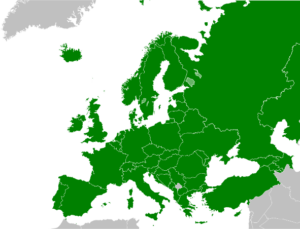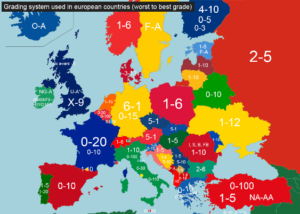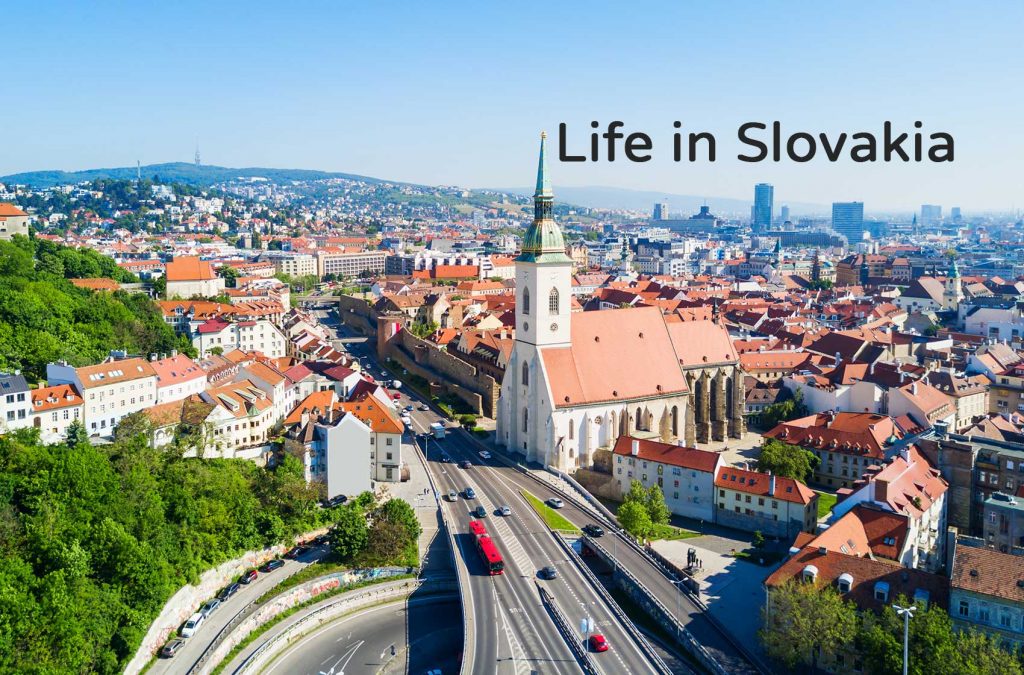
- Bachelor study programs are the first level of higher education in Slovakia.
- These programs typically take three or four years to complete.
- Specialized fields like medicine and engineering may require an additional year.
- Upon completion, students are awarded a Bachelor’s degree.
- The second level of higher education includes master’s study programs.
- Master’s degrees usually take two years to complete.
- Some qualifications, such as teaching certificates, may require only one year.
- Students can pursue specialized fields and gain in-depth knowledge.
- Graduates receive a Master’s degree upon successful completion.
PhD (Doctoral) Level:
- The third level of higher education consists of doctoral (PhD) study programs.
- These programs focus on research and academic excellence.
- PhD candidates engage in original research, write dissertations, and defend their work.
- The duration varies, but it typically takes 3-4 years.
- Successful candidates earn a Doctoral degree (PhD).
Grading System:
Slovakia uses the European Credit Transfer and Accumulation System (ECTS) for grading
- A: Excellent (equivalent to 1)

- B: Very goodThe ECTS grading scale includes:
- C: Good
- D: Satisfactory
- E: Sufficient (passing grade)
- F or FX: Failure (requires repeating the exam)
- While Slovak is the main teaching language, many programs are also offered in English for international students.
- If you study in Slovak, tuition fees are significantly lower than for English-taught programs.
Remember that all study programs must be accredited according to Slovak law, ensuring quality and recognition. Slovakia’s education system combines rigorous academic training with practical experience, making it an excellent choice for international students. ??
Slovakia follows the Bologna system principles in its higher education system. This means that it aligns with the European Higher Education Area (EHEA) standards, which include three cycles of study: Bachelor’s, Master’s, and Doctoral. The Bologna system aims to enhance student mobility, improve the quality of education, and facilitate the recognition of qualifications across European countries.
Bachelor’s Level:
Bachelor’s study programs are the first level of higher education in Slovakia. These programs typically take three or four years to complete, depending on the field of study. Specialized fields like medicine and engineering may require an additional year due to their demanding curriculum and practical components.
Students in bachelor’s programs engage in foundational coursework and practical training to develop essential skills in their chosen disciplines. Upon successful completion, graduates are awarded a Bachelor’s degree, which enables them to either enter the workforce or pursue further studies at the master’s level.
Master’s Level:
The second level of higher education includes master’s study programs, which typically take two years to complete. Some qualifications, such as certain teaching certificates or specialized programs, may require only one year.
Master’s programs are designed to provide students with advanced knowledge and expertise in their respective fields. Students often engage in research projects, internships, and practical training to deepen their understanding. Upon completion, graduates receive a Master’s degree, which qualifies them for professional careers or doctoral studies.
PhD (Doctoral) Level:
The third level of higher education consists of doctoral (PhD) study programs. These programs focus on research and academic excellence, allowing students to contribute original findings to their fields.
PhD candidates are required to conduct independent research, write a dissertation, and defend their work before a panel of experts. The duration of PhD programs varies by discipline but typically takes three to four years. Successful candidates earn a Doctoral degree (PhD), which qualifies them for academic and research-based careers.
Grading System:
Slovakia uses the European Credit Transfer and Accumulation System (ECTS) for grading, ensuring compatibility with other European universities. The grading scale includes:
- A: Excellent (equivalent to 1)
- B: Very Good
- C: Good
- D: Satisfactory
- E: Sufficient (minimum passing grade)
- F/FX: Failure (requires repeating the exam)
Language of Instruction:
Slovak is the primary language of instruction in most universities, but many programs are also offered in English to accommodate international students. Those who choose to study in Slovak benefit from significantly lower tuition fees compared to English-taught programs. Some universities even offer free Slovak language courses to help international students integrate better.
Tuition Fees and Scholarships:
Higher education in Slovakia is relatively affordable compared to other European countries. Public universities often offer tuition-free education for Slovak and EU students who study in Slovak. However, non-EU students and those enrolled in English-language programs may be required to pay tuition fees, which vary depending on the university and field of study.
Numerous scholarship opportunities are available for international students, including government-funded and university-specific scholarships. These scholarships help cover tuition fees, living expenses, and research-related costs.
Student Life and Opportunities:
Slovakia offers a vibrant student life with numerous extracurricular activities, student organizations, and cultural experiences. Many universities provide modern facilities, libraries, and research centers to enhance the academic experience. Additionally, Slovakia’s location in Central Europe allows students to travel easily to neighboring countries for academic exchanges and cultural exploration.
Accreditation and Quality Assurance:
All study programs in Slovakia must be accredited by the Slovak Accreditation Agency for Higher Education to ensure quality and international recognition. Universities are regularly assessed to maintain high educational standards and meet European qualifications frameworks.
In conclusion, Slovakia’s higher education system combines rigorous academic training with practical experience, making it an attractive destination for both domestic and international students. The structured degree system, affordability, and diverse learning opportunities make studying in Slovakia a valuable and enriching experience.




